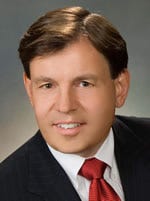
Decanting is the act of distributing the assets of an old trust to a new one with more desirable terms. It provides an easy method for correcting errors or ambiguities, adapting a trust to changes in a settlor’s objectives or changes in a beneficiary’s circumstances, taking advantage of new planning opportunities or adding flexibility to a trust.
Reasons to Decant
Decanting can be used to improve a trust in numerous ways.
Correcting drafting errors or clarifying ambiguities. These are the most basic reasons for decanting. Older trusts without trust protectors are now easy to fix by decanting into a new trust with the desired provisions.
Expanding the trustee’s decision-making authority over principal and income. Trust income that’s retain...
Unlock All Access Premium Subscription
Get Trusts & Estates articles, digital editions, and an optional print subscription. Choose your subscription now and dive into expert insights today!
Already Subscribed?









